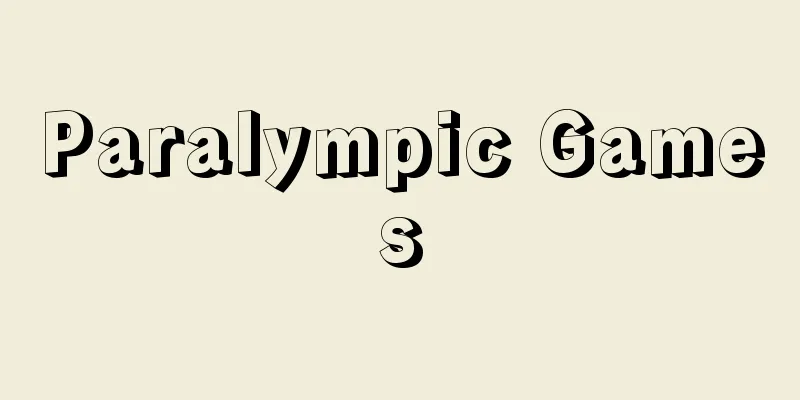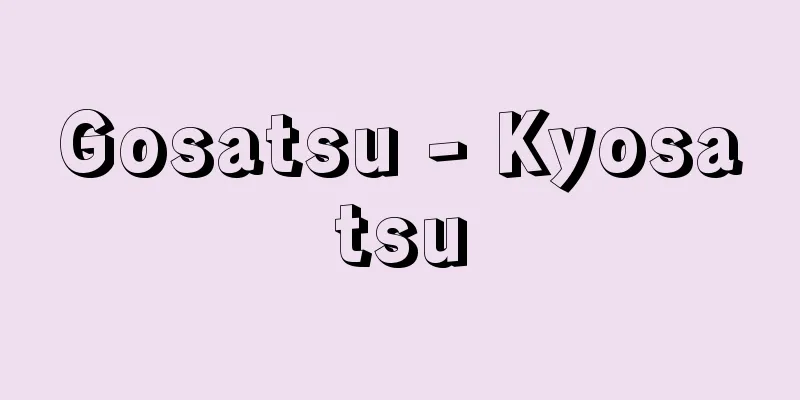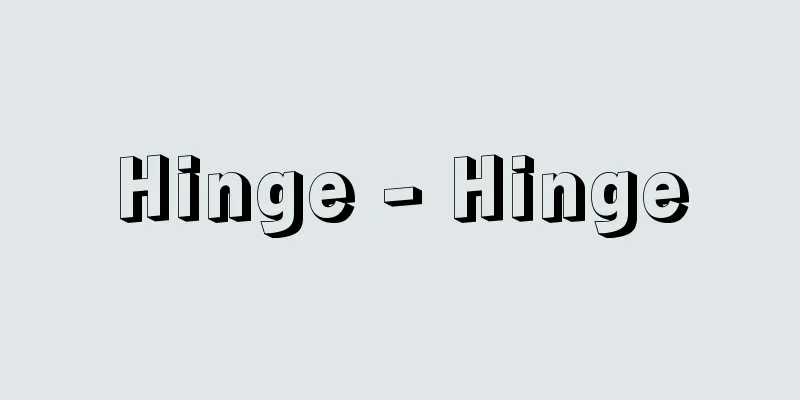Paralympic Games

|
Organized by the International Paralympic Committee (IPC), it is the highest level international sporting event for people with disabilities (except for those with hearing impairments) and their supporters. It is held once every four years in the same city as the Olympic Games. The summer games are a huge event with over 4,000 athletes from over 160 countries and regions participating. The name "Paralympics" was used at the 1964 Tokyo Paralympics as a nickname combining "paraplegia," meaning paraplegia (lower body paralysis), and "Olympic." Since the 1988 Seoul Paralympics, it has been used to mean "another (Parallel) Olympics." "Paralympics" became the official name when the IPC was founded in 1989. In 1944, the Spinal Cord Injury Department (later the National Spinal Cord Injury Centre) was opened at Stoke Mandeville Hospital in Aylesbury, England. The director of the centre, Ludwig Guttmann (1899-1980), introduced sports as a form of rehabilitation for spinal cord injuries sustained during World War II, with great success. In 1948, the centre held an archery competition (the first Stoke Mandeville Games) to test the results of rehabilitation, with 16 athletes participating. This was the origin of the Paralympics. The competition has been held annually, and in 1952, with the participation of Dutch athletes, it became the International Stoke Mandeville Games (130 athletes). Since then, the number of participating countries, athletes and events has increased, and in the 1960 Games held in Rome, 400 athletes from 23 countries participated in 11 events. Initially, only athletes with spinal cord injuries participated in the Games, but after the 1976 Games, sports organizations were created to oversee athletes with amputations, cerebral palsy, or visual impairments, and athletes other than those with spinal cord injuries began to participate in the Games. However, the administrative procedures for participating in the Games became complicated as sports organizations for various types of disabilities participated. To coordinate this, the International Coordinating Committee (ICC) was formed in 1982. In 1989, representatives from each country and region joined the ICC to form the IPC. The IPC then looked back to past Games and determined that the International Stoke Mandeville Games held in Rome in 1960 were the first Paralympic Games, and the 1964 Tokyo Paralympic Games were the second. The first Winter Paralympics was held in Sweden in 1976. The Winter Paralympics held in Nagano Prefecture in 1998 will be the seventh Games. In 2000, during the Sydney Paralympics, then-International Olympic Committee (IOC) President Samaranch and IPC President Robert D. Steadward (1946-) met and agreed on the future of both events, signing an agreement the following year in 2001. The contents of the agreement included: the host country of the Olympics would host the Paralympics after the Olympics, the Olympic Organizing Committee would also be in charge of the Paralympics, the IOC would provide financial support for the Paralympics, entry fees for Paralympic athletes and officials would be free, and the host country's Olympic Committee would own the broadcasting rights for the Paralympics. As a result, the Paralympics became another Olympics in both name and reality. The sports to be held at the Summer Games (as of 2021) are: archery, athletics, badminton, boccia, canoeing, cycling, equestrian, five-a-side football (blind football), goalball, judo, powerlifting, rowing, shooting, sitting volleyball, swimming, table tennis, taekwondo, triathlon, wheelchair basketball, wheelchair fencing, wheelchair rugby, and wheelchair tennis. Of these, boccia and goalball are unique to the Paralympics. Boccia is a sport similar to curling and petanque, in which participants try to throw a red or blue ball as close as possible to a white jack ball, which is a target. People with severe physical disabilities who use wheelchairs can participate. In the more severe classes, they can ask for the help of an assistant. Goalball is a sport for visually impaired people. Each team consists of three players, and they play on a court the same size as volleyball, rolling a ball that makes a sound around each other. A point is scored when the thrown ball goes into the goal behind the opposing team's three defenders. At the London 2012 Paralympics, a Japanese women's team won the gold medal. It was the first time that Japan had won a gold medal in a team sport. The Tokyo 2020 Paralympic Games were postponed by one year due to the spread of the new coronavirus disease (COVID-19), and were held from August 24 to September 5, 2021. A total of 539 events in 22 sports were held, with approximately 4,400 athletes from 161 countries and regions around the world, as well as a refugee team, participating. A record 254 athletes from Japan participated, winning 13 gold medals, 15 silver medals, and 23 bronze medals. Due to the impact of COVID-19, the games were held without spectators, with the exception of a few children who watched. However, the games received more coverage than ever before on television, the internet, and in newspapers, including over 500 hours of broadcasting by NHK, and reached many people. The sports held at the Winter Games (as of 2022) are alpine skiing, biathlon, cross-country skiing, snowboarding, para ice hockey, and wheelchair curling. Para ice hockey is played by people with disabilities in the lower limbs on sledges on the ice. In individual sports, players are divided into classes according to the level of their disability and physical function, and compete against players of the same class. In team sports other than para ice hockey and goalball, points are allocated to each player (the more severe the disability, the lower the points), and a cap is placed on the total points of players playing on the court, ensuring fairness between teams and allowing people with severe disabilities to participate. In addition, people without disabilities also participate in sports as players or supporters, such as assistants in boccia, guide runners when visually impaired people run, goalkeepers in blind football, and pilots (the person riding in front) in tandem cycling events (two-seater bicycles). In addition to the Paralympic sports, some changes have been made to the rules of regular sports to make it easier for people with disabilities to participate. Examples of this include underwater starts in swimming, not applying the double dribble rule in wheelchair basketball, and being allowed to hit the ball after two bounces in wheelchair tennis. Classification and the points system are unique to sports for people with disabilities, and fair and accurate classification must always be guaranteed. In addition, promoting participation in the Paralympics from developing countries and eradicating doping, just as with the Olympics, are issues that must be overcome in order for the Paralympics to develop. [Noriaki Fujita October 20, 2021] "Sports for the Disabled," edited by the Sports Committee of the Japanese Society of Rehabilitation Medicine (1996, Igaku-Shoin)" ▽ "Invitation to the Paralympics -- Challenging Athletes," by Nakamura Taro (2002, Iwanami Shoten)" ▽ "How to Enjoy the Paralympics," by Fujita Noriaki (2016, Shogakukan)" [References] | |Source: Shogakukan Encyclopedia Nipponica About Encyclopedia Nipponica Information | Legend |
|
国際パラリンピック委員会(IPC)が主催する、障害者(聴覚障害者を除く)とその補助者が参加する、障害者の最高峰の国際スポーツ大会。4年に一度オリンピック開催地で開かれる。夏季大会には160以上の国と地域、4000人以上の選手が参加する巨大イベントである。パラリンピックの名称は、1964年(昭和39)パラリンピック東京大会のときに対麻痺(ついまひ)(下半身麻痺)を意味するparaplegeaとOlympicをあわせた愛称として使われた。1988年パラリンピック・ソウル大会のときからは、「もう一つの(Parallel)オリンピック」という意味を込めて使われるようになった。パラリンピックが正式名称となったのは、1989年のIPC創設のときである。 1944年イギリスのエールズベリーAylesburyにあるストーク・マンデビルStoke Mandeville病院に脊髄(せきずい)損傷科(後の国立脊髄損傷者センター)が開設された。センター長のグットマンLudwig Guttmann(1899―1980)は第二次世界大戦で負傷した脊髄損傷者のリハビリテーションとしてスポーツを取り入れ、大きな成果をあげた。1948年、同センターはリハビリテーションの成果を試すアーチェリーの試合(第1回ストーク・マンデビル競技大会)を開催し、16人の選手が参加した。これがパラリンピックの原点である。大会は毎年開催され、1952年にはオランダの選手の参加を得て、国際ストーク・マンデビル大会(参加選手130人)となった。その後、参加国、参加選手、実施競技数が増え、1960年ローマで開かれた大会では11競技に23か国400人の選手が参加した。 当初、この大会には脊髄損傷者だけが参加していたが、四肢などの切断や脳性麻痺、あるいは視覚障害のある選手をそれぞれ統括するスポーツ組織などがつくられたこともあり、1976年の大会以降は脊髄損傷者以外の選手も大会に参加するようになった。しかし、さまざまな障害の種類のスポーツ組織が参加することから、大会参加に伴う事務手続は煩雑になった。これを調整するため、国際調整委員会(ICC)が1982年に組織された。1989年にはこれに各国・地域代表が加わりIPCが設立された。そして、IPCは、過去の大会にさかのぼり、1960年にローマで開催された国際ストーク・マンデビル大会を第1回パラリンピック大会、1964年パラリンピック東京大会を第2回大会と定めた。なお、第1回冬季パラリンピックは1976年スウェーデンで開催された。1998年(平成10)に長野県で開催された冬季パラリンピックは第7回大会となる。 2000年、パラリンピック・シドニー大会の際に当時の国際オリンピック委員会(IOC)会長のサマランチとIPC会長のステッドワードRobert D. Steadward(1946― )が会談し、両大会の将来的なあり方について合意し、翌2001年合意書が交わされた。その内容は、オリンピック開催国はオリンピック終了後にパラリンピックを開催する、オリンピック組織委員会がパラリンピックも担当する、IOCがパラリンピック開催に際して財政的援助を行う、パラリンピック選手および役員の大会エントリー費を無料にする、パラリンピック放映権は開催国オリンピック委員会が有するなどである。これにより、パラリンピックは名実ともにもう一つのオリンピックとなった。 夏季大会で実施される競技(2021年時点)は、アーチェリー、陸上競技、バドミントン、ボッチャ、カヌー、自転車競技、馬術、5人制サッカー(ブラインドサッカー)、ゴールボール、柔道、パワーリフティング、ボート、射撃、シッティングバレーボール、水泳競技、卓球、テコンドー、トライアスロン、車いすバスケットボール、車いすフェンシング、車いすラグビー、車いすテニスである。このうち、ボッチャ、ゴールボールはパラリンピック独自の競技である。 ボッチャはカーリングやペタンクと似た競技で、的となる白いジャックボールに赤または青いボールをできるだけ近づけるように投げる。重度の身体障害があり、車いすを使用している人が参加する。障害の重いクラスでは補助者の助けを求めることができる。 ゴールボールは視覚障害者のための競技である。1チーム3人で、バレーボールと同じ大きさのコートを使用し、音の出るボールを互いに転がしあって競技する。投げたボールが相手のディフェンス3人の後ろにあるゴールに入ると得点となる。パラリンピック・ロンドン大会(2012年)では日本女子が優勝。チーム競技での金メダル獲得は日本初であった。 2020パラリンピック東京大会は新型コロナウイルス感染症(COVID(コビッド)-19)拡大の影響で、1年延期され、2021年8月24日から9月5日まで開催された。22競技539種目が実施され、世界161の国と地域および難民選手団、約4400人の選手が参加した。日本からは、これまでの最多の254人が参加、金メダル13、銀メダル15、銅メダル23を獲得した。新型コロナウイルス感染症の影響で、一部の子供たちが観戦した以外は無観客で行われたが、NHKが500時間以上放送するなど、テレビ、インターネット、新聞などでこれまで以上にとりあげられ、多くの人々の目に触れた。 冬季大会で実施されている競技(2022年時点)はアルペンスキー、バイアスロン、クロスカントリースキー、スノーボード、パラアイスホッケー、車いすカーリング。パラアイスホッケーは下肢に障害のある人が氷上でスレッジ(そり)に乗ってプレーするものである。 個人競技では、障害の状況や身体機能によってクラスが分かれており、同じクラスの選手同士で競技する。パラアイスホッケーとゴールボール以外のチームスポーツでは、各選手の持ち点が決められ(障害の重い人ほど持ち点が小さい)、コート上でプレーする選手の持ち点の合計に上限を設けることで、チーム間の公平性を確保し、障害の重い人でも参加できるようにくふうしている。 なお、ボッチャのアシスタント、視覚障害者が走るときのガイドランナー、ブラインドサッカーのゴールキーパー、自転車競技のタンデム種目(2人乗り自転車)のパイロット(前に乗る人)等では、プレーヤーや補助者として障害のない人も競技に参加している。 パラリンピック独自の競技以外では、一般の競技ルールを一部変更して障害者が参加しやすいようにくふうしている。水泳の水中スタートや、車いすバスケットボールでダブルドリブルが適用されないこと、車いすテニスでツーバウンドした球を打ってもよいことなどがその例である。 クラス分けや持ち点制は障害者スポーツ独自のものであり、公平で正確なクラス分けはつねに担保されなくてはならない。また、開発途上国のパラリンピック参加の促進や、オリンピックと同様にドーピングの根絶は、パラリンピック発展のために越えなくてはならない課題である。 [藤田紀昭 2021年10月20日] 『日本リハビリテーション医学会スポーツ委員会編『障害者スポーツ』(1996・医学書院)』▽『中村太郎著『パラリンピックへの招待――挑戦するアスリートたち』(2002・岩波書店)』▽『藤田紀昭著『パラリンピックの楽しみ方』(2016・小学館)』 [参照項目] | |出典 小学館 日本大百科全書(ニッポニカ)日本大百科全書(ニッポニカ)について 情報 | 凡例 |
<<: Halal - Hara-ru (English spelling) alāl Arabic
>>: Pararaton (English spelling)
Recommend
Compost - Haigodo (English spelling)
Potted plants have limited root development, so th...
Seven-day calendar
A calendar book that records the daily degrees of...
butene
…It is an aliphatic chain unsaturated hydrocarbon...
Kol'tsov, AV (English spelling) KoltsovAV
...The world of poetry was the first place where ...
John Edward Lennard-Jones
1894‐1954 British physicist and chemist. He studie...
Arsaces I (English spelling)
… [history] The founding of the Parthian state to...
Monastery - shuudouin (English spelling) monastery
In Christianity, those who take special vows and ...
Iseria scale insect - Iseria red scale insect
... Infested plants suffer direct damage from the...
Mainspring - Mainspring
A summer-green fern of the Osmundae family. Its l...
Scolopendridae
…A general term for arthropods in the order Scolo...
Things to Come
...Furthermore, Fritz Lang's Metropolis (1926...
Calappa hepatica (English spelling) Calappahepatica
… [Takeda Masatomo]. … *Some of the terminology t...
Karamai - Karamai
A city on the western edge of the Junggar Basin in...
Kir (cocktail) - Kir
…Stir gently, then float about 5 spoons of whippe...
Hattanori
Also called hachitan. Silk fabric with vertical an...









